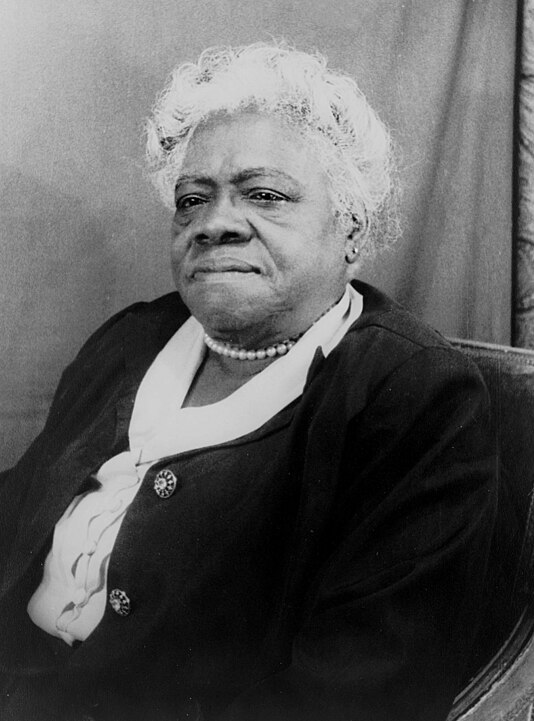Shin-Kickers from History: Mary McLeod Bethune.
Several blog posts ago, political activist Mary McLeod Bethune (1875- 1955) stepped onto the page (okay, screen) for a moment. I realized that though I was familiar with her name, I didn’t really know anything about her. Turns out that there is a lot to know. Here are some of the highlights:
The daughter of formerly enslaved parents, Bethune was the first person in her family born into freedom and the first to receive a formal education. She went on to spend sixty years in public service, wearing many different hats but all of them in pursuit of one goal: “unalienable rights of the citizenship for Black Americans.”
After graduating from the Scotia Seminary, a boarding school established after the Civil War to educate Black girls , she attended Dwight Moody’s Institute for Home and Foreign Missions in Chicago. Unable to find a church to sponsor her as a missionary, she became an educator, teaching at schools in Georgia and South Carolina. In 1904 she opened a school in Florida, the Daytona Literary and Industrial School for Training Negro Girls. The school eventually became a women’s college and then merged with the all-male Cookman Institute to form the four-year coeducational Bethune-Cookman College in 1923. Bethune became the first Black woman in America to serve as a college president. She remained it president until 1947. The college remains once of the top historically Black colleges and universities.
While leading the college, Bethune found her way to the national political stage** through her involvement in organizations devoted to issues important to Black women in America, including voting rights. She served as an advisor to both Calvin Coolidge and Herbert Hoover. In 1935, she became the first Black woman to head a federal agency when President Franklin Roosevelt named her director of Negro Affairs of the National Youth Administration, a position she held until 1944. She established and led the Federal Council on Negro Affairs, which served as Roosevelt’s unofficial “black cabinet” on issues facing Black communities. During World War II, she was active in mobilizing Black support for the war effort and in advocating for equal opportunity in defense industries and in the armed forces—a two-pronged campaign that she summed up in a 1941 speech as “we must not fail America, and as Americans, we must not let American fail us.”
After the war, Bethune served as a consultant to the American delegation to the founding conference of the United Nations in 1945 . (In a more equal world, she would have been a member of that delegation.)
Today the Mary McLeod Bethune Council House is a national historical landmark and home to the National Archives for Black Women’s History.






I dig the shin kickers, and this lady was one in my book. Thanks for this History in the Margins post (I love and read them all). I’m enlightened and thrilled. Putting Mary’s Council House on my list of places to visit.
I’ve added the council house to my list as well!